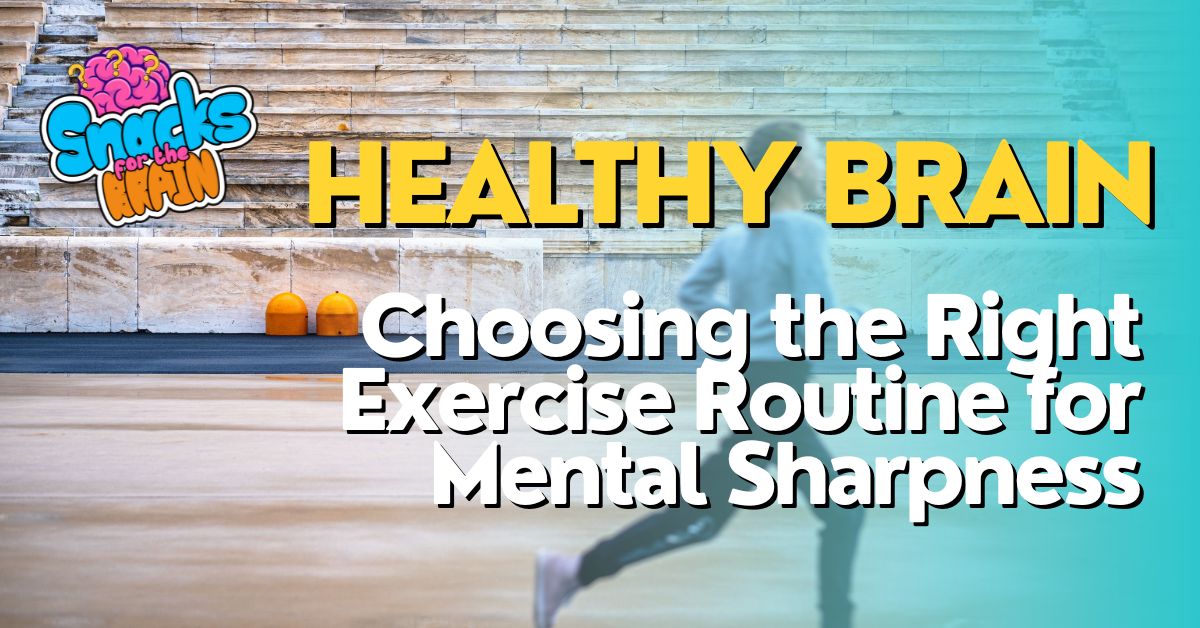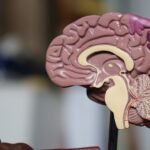Exercise is not only important for physical health, but it also plays a crucial role in reducing stress and improving mental well-being. In today’s fast-paced and stressful world, finding effective ways to manage stress is essential for maintaining a healthy mind and body. This article will explore the link between exercise and stress reduction, the physical and mental benefits of regular exercise, how exercise can boost brain function and improve mental clarity, the science behind exercise as a stress management tool, the role of exercise in reducing anxiety and depression, finding the right type of exercise to fit your lifestyle and needs, the importance of consistency in exercise for long-term stress management, overcoming barriers to exercise, combining exercise with other stress-reducing techniques for maximum benefits, the future of exercise and brain health research, and a call to action for readers to incorporate exercise into their daily routine.
Key Takeaways
- Exercise is linked to stress reduction and can help improve mental health.
- Regular exercise has physical and mental benefits, including improved mood and reduced anxiety.
- Exercise can boost brain function and improve mental clarity.
- Science supports exercise as a stress management tool, reducing anxiety and depression.
- Finding the right type of exercise and being consistent is important for long-term stress management.
Understanding the Link Between Exercise and Stress Reduction
Exercise has a profound impact on the body’s stress response. When we engage in physical activity, our bodies release endorphins, which are natural chemicals that act as painkillers and mood elevators. These endorphins help to reduce stress levels and promote a sense of well-being. Additionally, exercise increases blood flow to the brain, which can improve cognitive function and reduce symptoms of anxiety and depression.
Cortisol is another hormone that plays a role in the body’s stress response. When we experience stress, cortisol levels rise, which can lead to negative effects on both our physical and mental health. However, regular exercise has been shown to reduce cortisol levels in the body, helping to alleviate stress and its associated symptoms.
Research has consistently shown that exercise is an effective tool for reducing stress. A study published in the Journal of Clinical Psychology found that individuals who engaged in regular physical activity had lower levels of perceived stress compared to those who were sedentary. Another study published in the Journal of Sport and Exercise Psychology found that exercise was associated with lower levels of anxiety and depression. These findings highlight the importance of exercise as a stress reduction tool.
The Physical and Mental Benefits of Regular Exercise
Regular exercise offers a multitude of physical and mental benefits that contribute to stress reduction. On a physical level, exercise helps to manage weight, improve cardiovascular health, and increase energy levels. When we engage in physical activity, our bodies burn calories, which can help to maintain a healthy weight or aid in weight loss. Additionally, exercise strengthens the heart and improves circulation, reducing the risk of cardiovascular diseases such as heart disease and stroke. Furthermore, regular exercise increases energy levels by improving sleep quality and increasing overall stamina.
In terms of mental health, exercise has been shown to reduce anxiety and improve mood. When we engage in physical activity, our bodies release endorphins, which are natural mood boosters. These endorphins help to reduce feelings of anxiety and depression, promoting a sense of calm and well-being. Exercise also provides an outlet for stress and tension, allowing individuals to release pent-up emotions and clear their minds.
The physical and mental benefits of regular exercise work together to reduce stress levels. When we take care of our bodies through exercise, we are better equipped to handle the challenges and pressures of daily life. By improving our physical health, we can increase our resilience to stress and improve our overall well-being.
How Exercise Can Boost Brain Function and Improve Mental Clarity
Exercise has been shown to have a positive impact on brain function and mental clarity. Research has consistently demonstrated that regular physical activity can improve cognitive function, memory, and attention span.
A study published in the Journal of Aging and Physical Activity found that older adults who engaged in regular aerobic exercise had better cognitive function compared to those who were sedentary. Another study published in the Journal of Clinical Psychology found that exercise improved memory and attention span in individuals with depression.
Exercise affects the brain in several ways. First, it increases blood flow to the brain, delivering oxygen and nutrients that are essential for optimal brain function. Second, exercise stimulates the release of growth factors, which promote the growth of new neurons and improve neural connections. Finally, exercise increases the production of neurotransmitters such as dopamine and serotonin, which play a crucial role in mood regulation and mental clarity.
Improved mental clarity is particularly beneficial for stress reduction. When our minds are clear and focused, we are better able to manage stress and make rational decisions. Exercise provides a natural way to boost brain function and improve mental clarity, enhancing our ability to cope with stress and maintain a positive mindset.
The Science Behind Exercise as a Stress Management Tool
The science behind exercise as a stress management tool lies in its ability to activate the body’s relaxation response and counteract the effects of stress hormones. When we engage in physical activity, our bodies release endorphins, which are natural painkillers and mood elevators. These endorphins help to reduce stress levels and promote a sense of well-being.
Additionally, exercise reduces cortisol levels in the body. Cortisol is a hormone that is released in response to stress, and high levels of cortisol can have negative effects on both our physical and mental health. Regular exercise has been shown to lower cortisol levels, helping to alleviate stress and its associated symptoms.
Exercise also activates the body’s parasympathetic nervous system, which is responsible for the relaxation response. When we engage in physical activity, our heart rate increases, our breathing becomes deeper and slower, and our muscles relax. This physiological response helps to counteract the effects of the body’s stress response, promoting a state of calm and relaxation.
Research has consistently shown that exercise is an effective tool for managing stress. A study published in the Journal of Clinical Psychology found that individuals who engaged in regular physical activity had lower levels of perceived stress compared to those who were sedentary. Another study published in the Journal of Sport and Exercise Psychology found that exercise was associated with lower levels of anxiety and depression. These findings highlight the scientific basis for using exercise as a stress management tool.
The Role of Exercise in Reducing Anxiety and Depression

Exercise plays a crucial role in reducing anxiety and depression. When we engage in physical activity, our bodies release endorphins, which are natural mood boosters. These endorphins help to reduce feelings of anxiety and depression, promoting a sense of calm and well-being.
Additionally, exercise increases the production of neurotransmitters such as dopamine and serotonin, which play a crucial role in mood regulation. Low levels of these neurotransmitters have been linked to depression and anxiety disorders. Regular exercise helps to increase the production of these neurotransmitters, improving mood and reducing symptoms of anxiety and depression.
Exercise also provides a distraction from negative thoughts and worries. When we are engaged in physical activity, our minds are focused on the present moment, rather than dwelling on past or future stressors. This can provide temporary relief from anxiety and depression symptoms, allowing individuals to experience a sense of peace and relaxation.
Research has consistently shown that exercise is an effective tool for reducing anxiety and depression. A study published in the Journal of Clinical Psychology found that individuals who engaged in regular physical activity had lower levels of anxiety and depression compared to those who were sedentary. Another study published in the Journal of Sport and Exercise Psychology found that exercise was associated with lower levels of anxiety and depression symptoms. These findings highlight the important role that exercise plays in improving mental health.
Finding the Right Type of Exercise to Fit Your Lifestyle and Needs
There are many different types of exercise to choose from, each offering unique benefits for stress reduction and overall well-being. It’s important to find the right type of exercise that fits your lifestyle and needs, as this will increase the likelihood of sticking with it long-term.
Cardiovascular exercise, such as running, swimming, or cycling, is a great option for improving cardiovascular health and burning calories. It also releases endorphins, which can help to reduce stress and improve mood. Strength training, such as weightlifting or bodyweight exercises, is another effective option for improving overall fitness and building muscle strength. Strength training can also help to reduce stress by providing an outlet for tension and promoting a sense of accomplishment.
Yoga and other mind-body exercises are excellent choices for reducing stress and promoting relaxation. These types of exercises focus on deep breathing, stretching, and mindfulness, which can help to calm the mind and release tension from the body. Yoga has been shown to reduce cortisol levels and improve mood in individuals with anxiety and depression.
When choosing the right type of exercise for your needs, consider your preferences, fitness level, and any physical limitations you may have. It’s important to choose an activity that you enjoy and that fits into your schedule. This will increase the likelihood of sticking with it long-term and reaping the benefits for stress reduction and overall well-being.
The Importance of Consistency in Exercise for Long-Term Stress Management
Consistency is key when it comes to exercise for long-term stress management. Engaging in regular physical activity is essential for reaping the full benefits of exercise on stress reduction and mental health.
When we exercise consistently, our bodies adapt to the physical demands placed upon them. This leads to improvements in cardiovascular fitness, muscle strength, and overall well-being. Consistency also helps to establish a routine and make exercise a habit, making it easier to incorporate into our daily lives.
Regular exercise has been shown to have long-term benefits for stress reduction. A study published in the Journal of Clinical Psychology found that individuals who engaged in regular physical activity had lower levels of perceived stress compared to those who were sedentary. Another study published in the Journal of Sport and Exercise Psychology found that exercise was associated with lower levels of anxiety and depression symptoms. These findings highlight the importance of consistency in exercise for long-term stress management.
To stay consistent with exercise, it’s important to set realistic goals and create a schedule that works for you. Start by setting small, achievable goals and gradually increase the intensity and duration of your workouts over time. Find activities that you enjoy and that fit into your schedule, whether it’s going for a walk during your lunch break or attending a group fitness class after work. Consistency is key for long-term stress management, so find ways to make exercise a priority in your daily life.
Overcoming Barriers to Exercise: Tips for Staying Motivated and Committed
There are many barriers that can prevent us from engaging in regular exercise, such as lack of time, lack of motivation, or physical limitations. However, with the right strategies and mindset, it is possible to overcome these barriers and stay motivated and committed to exercise.
One common barrier to exercise is lack of time. Many people feel that they don’t have enough time in their busy schedules to fit in regular physical activity. However, it’s important to prioritize exercise and make it a non-negotiable part of your daily routine. This may mean waking up earlier or finding pockets of time throughout the day to squeeze in a workout. Remember that even short bursts of activity can be beneficial, so don’t feel like you need to dedicate hours to exercise each day.
Another barrier to exercise is lack of motivation. It can be difficult to find the motivation to get up and move, especially when we’re feeling stressed or overwhelmed. One way to overcome this barrier is to find an activity that you enjoy and that brings you joy. When we enjoy what we’re doing, it’s easier to find the motivation to do it consistently. Additionally, finding an exercise buddy or joining a group fitness class can provide accountability and support, making it more likely that you’ll stick with your exercise routine.
Physical limitations can also be a barrier to exercise. It’s important to listen to your body and choose activities that are safe and appropriate for your fitness level and any physical conditions you may have. If you have a specific injury or limitation, consider working with a qualified fitness professional who can help you modify exercises and create a program that meets your needs.
Remember that consistency is key when it comes to exercise for stress management. Stay motivated and committed by setting realistic goals, finding activities that you enjoy, and making exercise a non-negotiable part of your daily routine.
Combining Exercise with Other Stress-Reducing Techniques for Maximum Benefits
While exercise is a powerful tool for stress reduction on its own, combining it with other stress-reducing techniques can maximize its benefits. There are many other techniques that can help to reduce stress, such as meditation, deep breathing, and mindfulness.
Meditation is a practice that involves focusing the mind and achieving a state of calm and relaxation. It has been shown to reduce stress levels and improve overall well-being. By combining meditation with exercise, you can enhance the relaxation response and promote a sense of peace and tranquility.
Deep breathing is another effective technique for reducing stress. When we take slow, deep breaths, we activate the body’s relaxation response and counteract the effects of the stress response. Deep breathing can be incorporated into any type of exercise, whether it’s yoga, running, or strength training. By focusing on your breath during exercise, you can enhance the stress-reducing benefits and promote a sense of calm and relaxation.
Mindfulness is the practice of being fully present in the moment and non-judgmentally observing our thoughts and feelings. By incorporating mindfulness into your exercise routine, you can enhance the mind-body connection and promote a sense of peace and well-being. Pay attention to the sensations in your body, the sounds around you, and the thoughts that arise during exercise. By staying present and focused, you can enhance the stress-reducing benefits of exercise.
Research has shown that combining exercise with other stress-reducing techniques can have a synergistic effect, enhancing the overall benefits for stress reduction and mental well-being. By incorporating techniques such as meditation, deep breathing, and mindfulness into your exercise routine, you can maximize the stress-reducing benefits and promote a sense of calm and relaxation.
The Future of Exercise and Brain Health Research: What We Know and What’s Next
While we have made significant progress in understanding the link between exercise and brain health, there is still much to learn. Current research has shown that exercise has a positive impact on cognitive function, memory, and mental clarity. However, there are still many unanswered questions about how exercise affects the brain and how it can be used as a therapeutic tool for individuals with cognitive decline or neurological disorders.
Future research will likely focus on exploring the mechanisms by which exercise affects the brain, as well as identifying specific types and intensities of exercise that are most beneficial for brain health. Additionally, researchers will continue to investigate how exercise can be used as a therapeutic tool for individuals with cognitive decline or neurological disorders such as Alzheimer’s disease or Parkinson’s disease.
The future of exercise and brain health research holds great promise for improving our understanding of how physical activity affects the brain and how it can be used to enhance cognitive function and mental well-being. With advancements in technology, researchers are now able to study the brain in real-time during exercise, allowing for a more comprehensive understanding of the mechanisms behind the benefits of physical activity. Additionally, emerging fields such as neuroplasticity and neurogenesis are shedding light on the brain’s ability to adapt and change in response to exercise, offering new possibilities for preventing and treating neurological disorders. As our knowledge continues to expand, we can expect to see innovative interventions and personalized exercise programs that target specific cognitive functions and brain regions, ultimately leading to improved brain health and overall quality of life.
If you’re interested in learning more about the connection between exercise and brain health, you might want to check out this informative article on Intelligence’s N Hacks website. In their article titled «7 Tips to Improve Your Memory,» they explore various strategies to enhance memory function. Understanding how exercise plays a role in managing stress and improving brain health can be a valuable addition to these memory-boosting techniques. To read the full article, click here.
FAQs
What is stress?
Stress is a natural response of the body to any demand or threat. It can be caused by various factors such as work pressure, financial problems, relationship issues, and health concerns.
How does stress affect the brain?
Stress can have a negative impact on the brain by causing cognitive impairment, memory problems, and mood disorders. It can also lead to the development of mental health conditions such as anxiety and depression.
What is the role of exercise in managing stress?
Exercise is an effective way to manage stress as it helps to reduce the levels of stress hormones in the body and promotes the release of endorphins, which are natural mood boosters. It also helps to improve sleep quality, which is essential for stress management.
How does exercise improve brain health?
Exercise has been shown to improve brain health by increasing blood flow to the brain, promoting the growth of new brain cells, and enhancing cognitive function. It also helps to reduce the risk of developing age-related cognitive decline and dementia.
What types of exercise are best for managing stress and improving brain health?
Any type of exercise that gets the heart rate up and increases blood flow to the brain can be beneficial for managing stress and improving brain health. Examples include aerobic exercise, strength training, yoga, and meditation.
How often should I exercise to manage stress and improve brain health?
The American Heart Association recommends at least 150 minutes of moderate-intensity aerobic exercise or 75 minutes of vigorous-intensity aerobic exercise per week for overall health benefits. However, any amount of exercise can be beneficial for managing stress and improving brain health.






